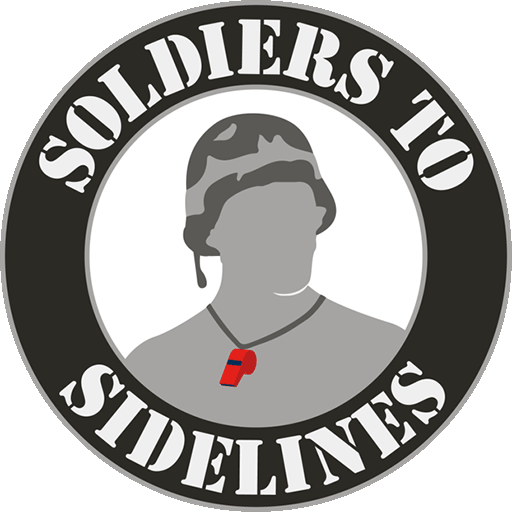Adaptive Athlete Coaching Certification Seminar – A Week of Inspiration, Inclusion, and Empowerment
In a world where challenges are ever-present, it’s inspiring to see communities come together to empower others to rise above their circumstances. One such event that epitomizes this spirit is the Adaptive Athlete Coaching Certification Seminar, recently hosted by Soldiers To Sidelines (STS). Led by Harrison Bernstein and Emily Throckmorton, this week-long seminar aimed to equip coaches with the skills and knowledge necessary to support and develop adaptive athletes.
The seminar kicked off with an enthusiastic welcome from Harrison Bernstein, the founder of Soldiers To Sidelines. His introduction set the tone for what would be an intensive yet rewarding week. The mission? To ensure that all participants walked away with a deep understanding of the unique needs and potential of adaptive athletes, covering critical topics like coaching success, impairment types, and sports classifications.
Emily Throckmorton, owner of Kaizen Athletics and founder of Kaizen Adaptive Training, took the lead in discussing adaptive fitness training. Her sessions were a masterclass in the importance of inclusion and safety, with a strong emphasis on addressing both physical and mental health. Emily’s dedication to fostering environments where every athlete can thrive was not just a theme but a clarion call for all coaches to consider the holistic needs of their athletes.
One of the most powerful aspects of the seminar was the inclusion of guest speakers who have lived the reality of adaptive sports. Keith Gabel, an American para snowboarder and Paralympic athlete, shared his journey of overcoming adversity. His story was a testament to the human spirit’s resilience and provided the coaches with a crucial insight: understanding an athlete’s personal motivation is the key to a successful coaching program.
Nick Lavery, an active duty Green Beret and CEO of Precision Components, further amplified this message. Nick’s session was a deep dive into the importance of clear decision-making, commitment, and resilience, particularly in the face of physical challenges. His personal anecdotes, especially those highlighting the importance of humor in tough situations, resonated deeply with the participants, reminding them that coaching is as much about emotional intelligence as it is about physical training.
As the week progressed, the seminar delved into the finer aspects of effective coaching. Harrison Bernstein led a thought-provoking session on the importance of communication and empathy, especially in adaptive sports. This was complemented by a presentation from Dr. Guy Romain, who discussed physical and traumatic impairments. The focus on neuro rehabilitation was particularly enlightening, offering strategies to help athletes stimulate their central nervous system and reconnect functional activity to the brain.
The seminar also explored the psychological component of training, emphasizing the need for individualized programs tailored to each athlete’s specific needs. This holistic approach, combining physical and mental training, underscored the seminar’s commitment to creating well-rounded coaches capable of supporting their athletes in every aspect of their development.
Understanding the importance of proper classification in adaptive sports was another critical component of the seminar. John Edward Heath’s session on the classification system used in adaptive sports was eye-opening. He explained the need for specific categories to accurately reflect an athlete’s abilities and needs, which is essential for fair competition and effective training. His personal journey from Olympic weightlifter to amputee was both inspiring and educational, highlighting the importance of education and understanding in adaptive sports.
Tim Cook, a trainer with the Adaptive Training Foundation, shared his insights into the assessment and training methodology for adaptive athletes. His emphasis on creativity and a growth mindset in coaching resonated with the participants, encouraging them to constantly reassess and adapt their methods to best serve their athletes.
Dr. Leslie Prom, a clinical assistant professor and doctor of physical therapy at Old Dominion University, who specializes in neuro-clinical therapy and has experience with patients with spinal cord injuries, cerebral palsy, and multiple presented on the benefits and recommendations of adaptive fitness for individuals with physical impairments. She emphasized that regular physical activity can improve physical functioning, completion of activities of daily living, social health, cognition, emotional function, and overall quality of life. Leslie also highlighted that adults with physical impairments are at a higher risk of secondary impairments, making exercise and physical activity even more crucial. She encouraged the attendees to consider starting or joining an adaptive fitness program in their community.
The seminar concluded with a session led by Josh Sager of the Adaptive Training Foundation, who shared his personal experience with injury and rehabilitation. His story, along with those of other adaptive sports coaches like Matt Lowery, Shawn Maloney, and Brandon Rush, highlighted the transformative power of adaptive training. The week-long seminar was more than just an educational event; it was a gathering of like-minded individuals committed to making a difference in the lives of adaptive athletes.
Soldiers To Sidelines continues to embody its mission of building better lives through better coaching. The Adaptive Athlete Coaching Certification Seminar was a powerful reminder of the impact that thoughtful, informed, and compassionate coaching can have on the lives of those who face challenges most of us can only imagine. As these newly certified coaches return to their communities, they carry with them not just knowledge, but the inspiration and tools to empower others to achieve their fullest potential.


Recent Comments